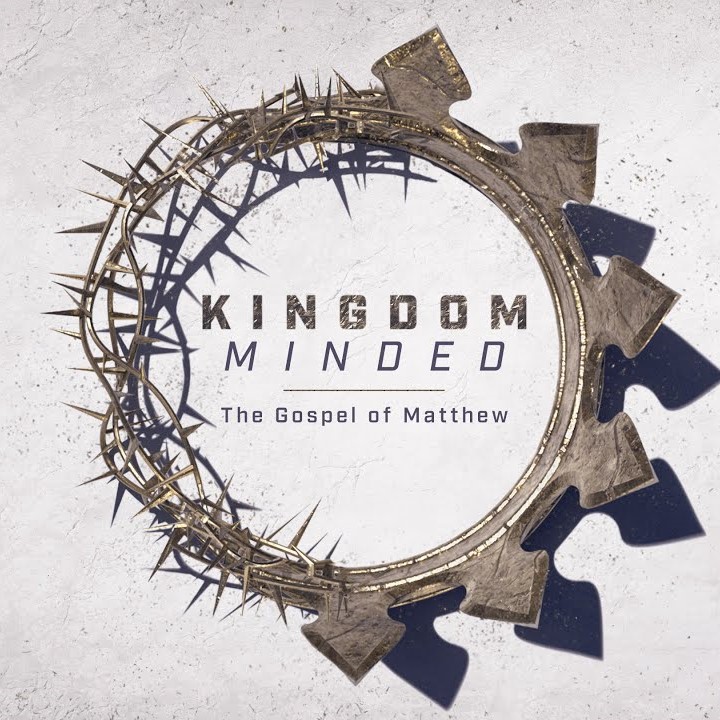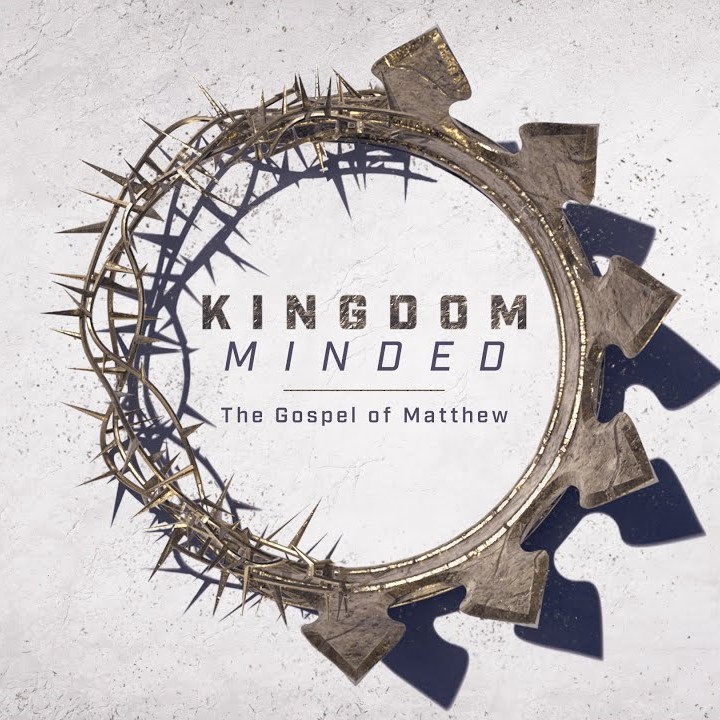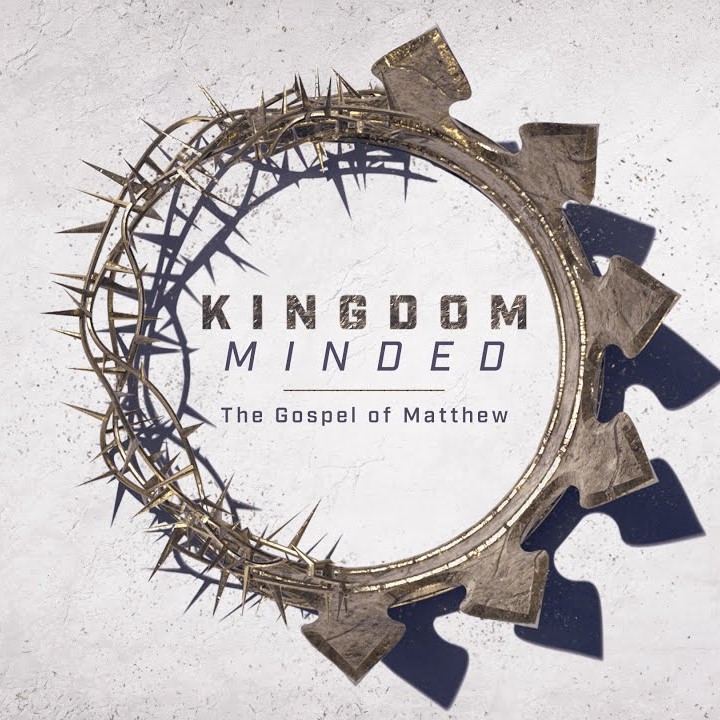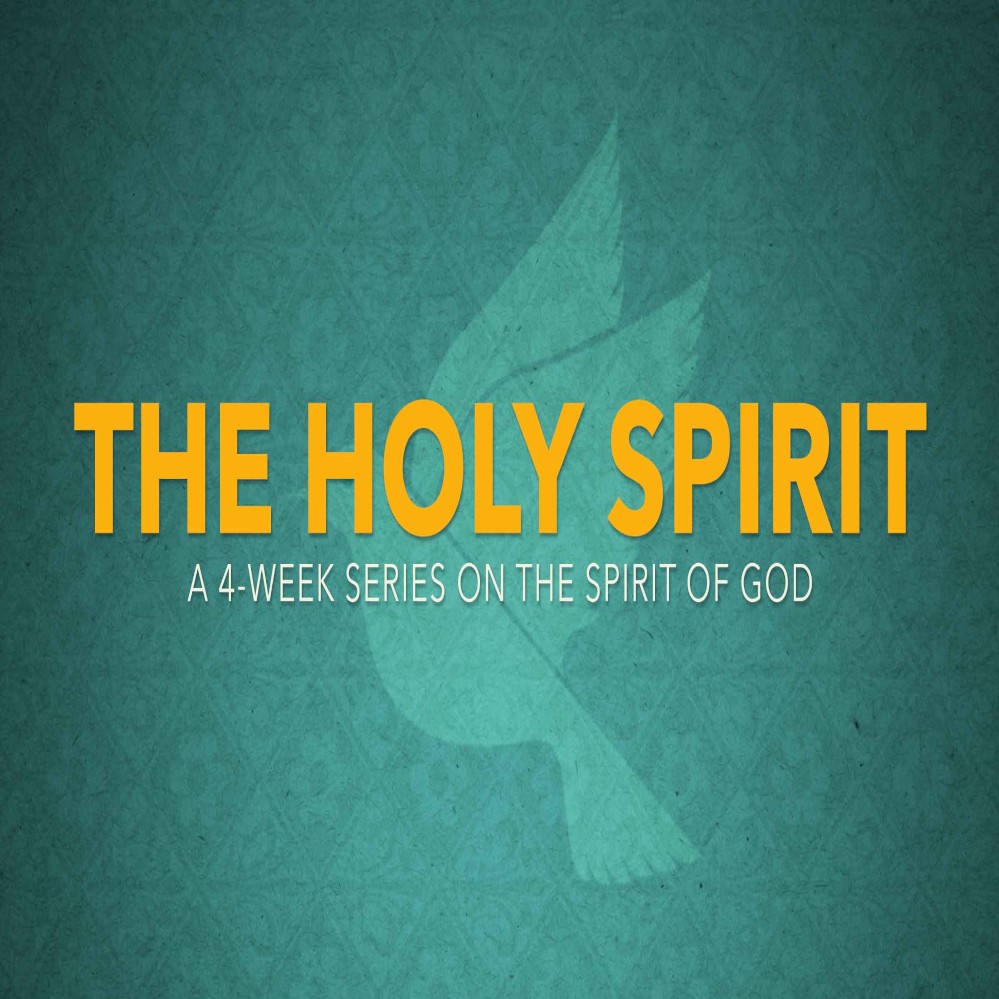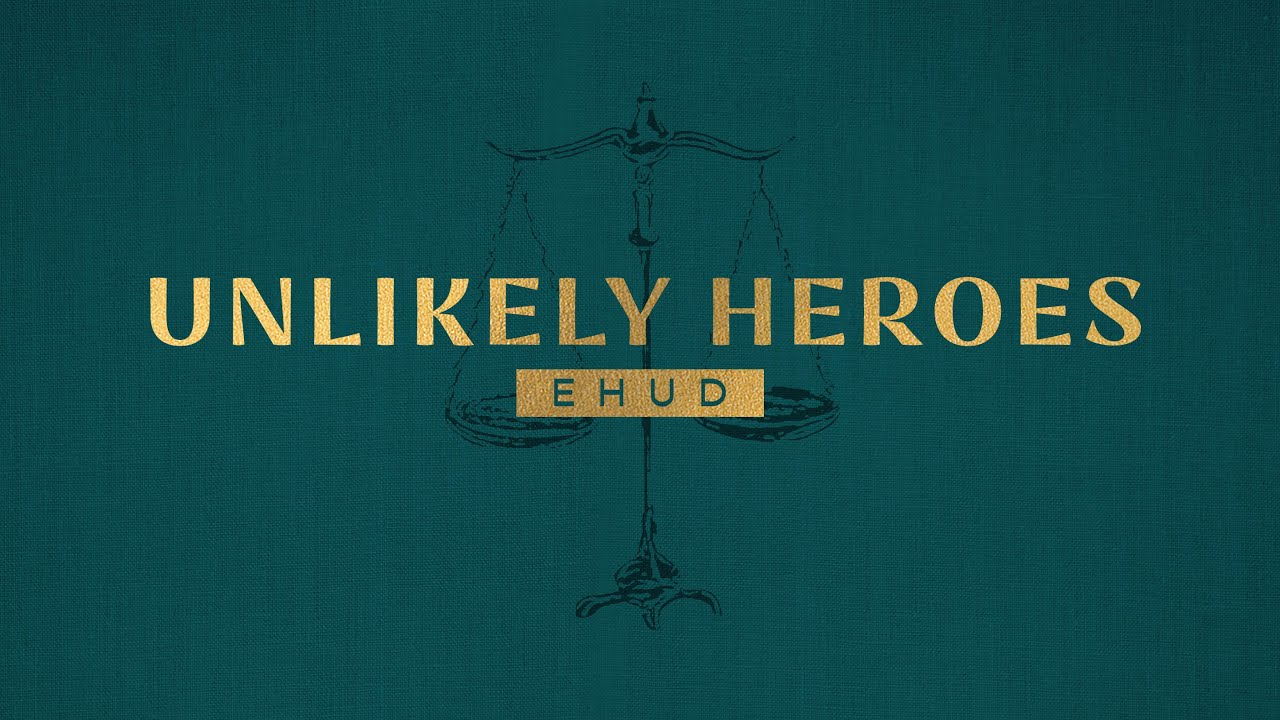[00:00:01] Speaker A: Hey, thanks so much for listening to this message. My name is Jason and I'm one of the ministers here at the Madison Church of Christ. It's our hope and prayer that the teaching from God's Word you hear today will bless your life and draw you closer to Him. If you're ever in the Madison, Alabama area, we'd love for you to worship with us on Sundays at 8:30 or 10:30am if you have any other questions about the Bible or want to know more about the Madison Church, find
[email protected] be sure to also check out our Bible study podcast, Madison Church of Christ Bible Studies. Thanks again for stopping by.
[00:00:38] Speaker B: It's amazing how one year can be so different than it was the year before. When I was in middle school, I shared with you guys a while back how when I was in middle school, they called a school wide meeting because bullying was taking place. There were several kids in our school that were getting called names and being made fun of. And so they called this school wide meeting.
And I would say, yeah, that had a little bit to do with the change that had happened in our class that year.
But to me, if you're just gonna ask my opinion, it had to do with one guy that came into our school in the middle of the year. His name was Jay. Okay, so when you go to a little Christian school like I went to, anytime somebody comes to the school in the middle of the year, you notice. It's pretty obvious.
But you especially noticed this guy for several reasons. Number one, the girls noticed him because he was a good looking guy. The second thing was he was very athletic and kind of very outgoing and talkative. So everybody noticed Jay.
But being a good looking guy and being athletic, you would have thought like, he fit into some kind of, like, mold. But he did not fit that mold. In fact, I'll never forget in January when we were sitting in the multipurpose room in our cafeteria, he walked in and sat down with the very people that just weeks before were the recipients of a lot of name calling and being picked. On the next day he sat at another table and the next day another table. And he was befriending all these different people. And it should not have taken Jay to do this, but Jay made it cool to look after the vulnerable and it made a huge difference in that class. We go from that one year to being like one of the closest classes ever the next year.
The reason why I give you that example on a much grander scale, that's exactly what's happening here. In Matthew chapter 5, Jesus is speaking to a crowd of people that have been marginalized.
They have been on the edge of the society looking in.
They have no inheritance, they have no land.
Yet this group of people that is hurting, that has been marginalized, that has no inheritance, this is what they hear.
You're blessed.
That could only come about because of one thing.
Jesus is ushering in a brand new kingdom.
If you were with us last week, Brandon kicked off this series called Kingdom Minded. And what we're doing is going through the Gospel of Matthew and looking at all the different times that we see the kingdom being mentioned, but specifically how being kingdom minded changes everything.
And if you were with us last week, Brandon shared with us that the idea of kingdom really refers to God's reign and God's rule happening right now.
In fact, as you go throughout the book of Matthew, we'll keep hearing Jesus saying things like this. My kingdom is here, My kingdom is at hand. And, and I know for me growing up, there's a little bit of confusion in that. Maybe there was for you that yes, the kingdom does include and the church is used as a part of that, but the God's kingdom and his reign and rule is what's happening right now. And he even says this before the church itself was established.
And you might think, well, why does it matter that I have that kind of mindset that God is reigning and ruling now?
Does that really change anything?
Well, I'll give you this example.
Maybe you remember a time where the person that you voted for, we'll just throw it out there, President, that the person that you picked, you voted for was elected.
When your person got that role, how did you feel?
I would dare to say for some of you, you probably were like, man, I feel so good. This is awesome. It kind of changed to you how you started to view everything. Now just a second, take a perfect, holy, awesome, almighty king and ruler who does not disappoint, who does not fail, who's reigning and ruling no matter what happens.
How should that change our mindset?
See, we see these phrases like the kingdom of heaven is near. But what we're going to see today in a very clear way is that the kingdom that Jesus came to establish is not like any other kingdom that has ever reigned or ruled on this earth.
And so what I want us to do today as we dig into this very well known text called the Beatitudes, I love what was mentioned this morning. Context is so important to this.
And specifically, if we don't know who these disciples are and we don't know who this crowd is. We will not purpose rightly understand the Beatitudes themselves. So let's give a little bit of an understanding of who this crowd is.
First you'll notice it says disciples.
And at first it might be easy to think, well, that's the 12, right? Well, no, the 12 didn't take place until Matthew 10.
And disciple just means a follower.
So who's following Jesus?
Who's in this crowd?
And I'm telling you, this matters a lot to understand the meaning behind these blessings. So if you go back and look at what we read this morning in Matthew chapter 4, verse 23, look what it says. He went through all of Galilee. He was teaching in the synagogues, proclaiming the Gospel of the kingdom.
He was healing every disease, every affliction among the people. His fame started to spread throughout all of Syria. And here's who they were bringing to him. The sick, those afflicted by various diseases.
They were going through pain. Those who were oppressed by demons, having seizures, paralytics, and he healed them. Great crowds were following him from Galilee into capitalists, from Jerusalem and Judea, and from beyond the Jordan. So what does Jesus say to this group of people that were insignificant according to others, that were marginalized in their society? They were weak, they were hurting, they were sick. Here's what he says to them, something that they would have never heard about themselves.
You're blessed.
Now, part of the reason why a blessing meant so much to them is that during their day, blessing was usually attached to your status.
In fact, what would oftentimes happen is that the wealthy or those that had land, there would be these people, these teachers, the even religious people that would go by your land. They would go by you and say, hey, I'm going to announce blessing on you. And I'm going to announce blessing on you. And so your blessing was directly connected oftentimes to your social or your physical status.
So that's what they were used to.
And in fact, even if you look before Jesus offers these blessings, it wasn't just something that they had heard about other people getting, but they remember back in the law that they would read things like this in Psalm chapter 1. Blessed is the man who doesn't walk in the counsel of the wicked. But who's blessed? Those that delight in the law of the Lord. Psalm 119:1 3. Blessed are those whose ways are blameless. Blessed are those who keep his testimonies, those who seek him with their whole heart. So blessing was something that they had heard of, but 50 years before Jesus Christ, we find this document. Now, it was later a course found. This was in the Dead Sea Scrolls, and this was a scroll that was found 50 BC and it was called the Beatitude Scroll. Now, this is not canonized, but this was something that was included in the wisdom of Solomon.
And so they had heard that. But I'm about to read you something in just a second that's really interesting because remember when I told you that usually the people that received blessings were the people that were a little more elite or had land, and that's who usually everyone saw as blessed? Well, there was a man 150 years BC before Christ, named Jesus Ben Seir, not Jesus Christ. Jesus been seir, which just means son of Seer.
And what you're about to read from him, by the way, is still in the new Catholic Bible.
But what you're going to notice is a very stark difference from what Jesus teaches, that these, what you're about to read are the types of blessings they were used to hearing during their day. Now, I do want to tell you this.
I left part of it out because it's one of those things if I read in here, it would get very.
There'd be some laughing and giggling, so I just eliminate it. But you can Google it later. And if you Google it during the service, I'll know because you'll be the one laughing. So. All right. Wisdom of Ben sir. Here's what it says.
I can think of nine I would call blessed and a tenth who my tongue proclaims. Now, you can tell from the very beginning there's some arrogance in this guy, right?
He's saying, I mean, I can think of 10, nine that I would call blessed. And then 10th would be one that I would, you know, come from my very mouth. Blessed is the man who delights in his children. That sounds really good. But then look what it says next.
And the one who lives to see the downfall of his enemies.
Ooh, that doesn't sound like Jesus.
And then this was the other blessing that they were used to hearing. Blessed is the one who lives with a sensible wife.
Now that's a good conversation starter at lunch.
And the one who. And that's the one you can look up later.
Then how about this one? Blessed is the one who does not sin with the tongue. I was like, okay, that sounds good. But then look what it says next. And the one who does not serve an inferior.
Then this final one, blessed is the one who finds a friend.
And the one who speaks to an Attentive audience.
So what's interesting is, especially with that last one, Jesus was not about us taking center stage, but God taking center stage. And he says, actually, you're blessed when you have a lot of people hearing you and your words.
That's what they were used to hearing.
See, Christ's kingdom was bringing in a whole new idea of what it really looks like to be blessed.
I'll give you this as an example.
This is art, according to Tim Noble and Sue Webster. And I don't know if y' all have been to, like, an art museum with somebody or, like, an art show, and you're with someone, like, knows about art, and then you're with them, and they're like, do you see it? And I'm like, I want to, but I don't. Like, I don't see it. I really. I just see an arm growing out of somebody's head. That's the only thing I see. Well, according to them, this is art. And if you look at it on the surface, right, just a bunch of trash with some BB holes through it. That's what they did. They just put trash up and shot bbs through it.
You know what's interesting? You put light on that trash, and this is what it looks like.
I'll give you another one they did again, this just looks like a pile of trash.
Nothing that great.
But all of a sudden, light hits it, and it's two people.
That's what Jesus is doing. Of all the people, by the way, that he could choose to bring the kingdom to first, he picks this group of people again that were marginalized, that felt like trash, that were weak, that were hurting, and put light upon them.
And all of a sudden, now they are the vehicle.
Now they are the meaning of beauty and the meaning of significance. Why, of all means, did Jesus decide to bring the kingdom to them first? Well, what we're going to see today is that oftentimes those that have the least are sometimes the most open to truth.
And so the other part that's so important in understanding the Beatitudes, and I remember when I was a kid, we had, like, this bulletin board that said, you know, be these. You know, I had bees all over it. You know, that's kind of a popular thing to do, I think, with Beatitudes. But the way I used to understand them, I don't know if y' all are like me in this. I used to understand them that they were written.
You'll be blessed if you're meek, or you'll be blessed if you mourn or you'll be blessed. If you're poor in spirit, they're not written blessed. If these are written, blessed are.
And here's why that's important.
Stanley Howeris said it like this, and I thought this was a good way to describe it. Too often these characteristics have been turned into virtues we strive to attain.
When we do that, we turn them into formulas to help us gain status and favor with God, which is the opposite of what Jesus is trying to say. Rather, they are descriptions of the kind of people Jesus first brought the kingdom of God to.
Jesus is announcing this great surprise. These people who are not honored are first to receive honor.
Another way to put it, Scott said this. He said, Jesus is not prescribing how to be blessed, but rather describing who is blessed.
While the world says the strong, the powerful, the happy are well off, Jesus turns our expectations upside down by saying it's the weak, the sad, the overlooked who are well off in God's kingdom. So the idea is not do this and you will be blessed, but is you can do this because you are blessed. And here's why. We also know that. What does all of this fall before the greatest sermon ever preached? We call it what the Sermon on the Mount.
He decides to start his sermon with this.
And that was purposeful.
The reason is he knows that his crowd, and he knows that us today as the crowd, cannot complete the Sermon on the Mount until we know we are operating from a place of blessing.
I shared with you a while back how there was this couple that I didn't do their premarital counseling, so I didn't know their, like, story from the beginning of their relationship.
So I knew him after they had been married several years, but they kept having issue after issue and just we couldn't ever really figure out what was going on. And so we went to lunch one day, and when we were at lunch, he said, you know, to me, I just really. This. It just really stems from when we were dating. Her parents didn't really want her to marry me. They didn't like me, and they weren't what, you know, I wasn't the kind of person they had in mind for her. And so, like, even when I went to, you know, ask her for her hand in marriage, they said, no, you're not the kind of person that we really want our daughter to marry. And so I married her anyway.
He said, And I guess her dad was right.
I guess I can't be the kind of man I need to be. I can't be the kind of leader.
See, do you see what happens when you are not operating from a place of blessing?
You're constantly thinking, well, maybe I don't have what it takes, maybe I can't do that. That's why before he mentions all these things in the Sermon on the Mount, he wants us to know first, we are blessed. There's a connection between blessing and behavior. So here's what we're gonna do today.
We're gonna quickly work through each of these Beatitudes. And as we do this, I want you to take each Beatitude, all nine, and think of them individually as like a piece in a stained glass.
And as we go through these, here's what I want you to be thinking as we go through each one. Whose picture is this? Stained glass?
Alright, now hold on to that. So seeing the crowd, who was the crowd? The marginalized, those that were hurt, those that were sick, that had no inheritance.
He sat down, his disciples came to him.
And I love how it says this next, he opened his mouth. Well, did it really need to say that?
Well, the reason why it said that he opened his mouth is that one of the things that we already know about Jesus as he's around a crowd, how does he view the crowd? Well, he views them as an opportunity. So what he does with that crowd, he will love them, he will have compassion on them. We just read that. So what it's saying is there are instances where he's interacting with in a relational way. Now he's about to interact in a teaching way. This is beginning the sermon and this is beginning the teaching. And this is where he decides, of all places to start. Blessed are the poor in spirit, for theirs is the kingdom of heaven.
If there's a group of people that had already heard that they were poor, it's these folks.
And so the genius of Jesus here to start in this way, he's like, hey, blessed are the poor spirit.
See, the poor in spirit really means that you're embracing dependence on God.
This was a group of people. Keep in mind that they were dependent on each other. If you look at even a map as to where most of these people would have come from, the society and the place that they lived, they were in kind of one of those communities where everybody was taking care of each other. Very Acts 2 model. They were looking after each other's needs. There was not a needy person among them. That was them. They had had this like kind of dependence with each other. He's saying, you're already used to that. And what I want you to understand. You can have that with me.
And see, part of the reason why I know he starts here, it has to be because of what he's about to say. Next are some hard teachings, because we all know how it is, right? You can sit in a Bible class, sit in the middle of a sermon, and hear something that kind of steps on your toes at times. But when do we receive it? We receive that teaching when we're humble and we're lowly. That's when we receive the teaching.
It's like that idea that God can't fill something that's already filled. He has to have an empty vessel. He has to have empty hands in order to work.
See, the reason why he starts here is those that have the least to lose are oftentimes more open to following Jesus. Here's why this is also important.
We are living in a world right now that does not teach dependence on God, but teaches self dependence. Oh, you want to do that. You do that because you know what's right and you follow you. In fact, if you go to American Humanist Association's website and you kind of scroll down, they ask this question, well, are you a humanist?
Are you guided by reason?
Well, that sounds good.
Are you inspired by compassion? Well, yeah. Who doesn't want to be compassionate, informed by experience?
All of that sounds good. But look in the top corner.
See, you can be good without God.
That's the message that's getting prevalent. That's why it's so important to teach from all the way down here to all the way up, to be dependent upon God. He says, blessed are the poor in spirit, those that are dependent on God, for theirs is the kingdom of heaven. Blessed are those who mourn, for they will be comforted.
This one's really neat for two ways, because it's referring to blessing this way and this way.
Because if you think about it, it takes one to mourn, but it takes two to comfort.
So because of that, he's challenging this notion that your happiness, your status, is directly tied to avoiding pain, avoiding difficulties we're going to talk about in a second avoiding persecution.
But instead, Jesus promises comfort to mournful people, that they have the opportunity for hope and healing.
And then he says, blessed are those that are meek.
That's not a word we throw around a lot today. You don't hear a lot, man. He's a real meek guy.
Because I think sometimes meekness is seen as weakness. But I love what one person said. Meekness is not weakness.
It's power that's under the control of the Holy Spirit.
What meekness is, is this.
And again, remember when we said that when you don't have a lot to lose, it then kind of impacts what you'll receive.
That you are able as a meek person to walk into a room.
And it's okay if it's not about you.
You can walk into a room and take second place instead of first place. So how does this impact the way you think? Well, just think about it for a second. What if every time you walked into a room to your work towards something in a community, and the way you thought is, you know what? I'm gonna put myself second place.
That's how I'm gonna operate.
And then this group of people that has no doubt been hungry and has been thirsty. Jesus uses a play on words and he says, blessed are those who hunger, thirst for righteousness.
They're going to be satisfied.
Have you ever been hungry or thirsty?
Sometimes I think being thirsty is a little bit more difficult. But then you know how it gets. When we get hungry, we get hangry. So I don't know which one it is. They're both kind of tough.
But he's saying that that feeling you have in your stomach, that's like something's not right.
Righteousness here is referring to things being made right in this world, relationships being made right. He said, when you have that kind of hunger, and in this instance, it's also when it speaks of righteousness, that you are craving this fellowship with God, that this relationship with him is right, and the relationship that stems from that with other people is made right.
He said that with that, what happens is. And by the way, we've probably noticed this, when you do something right and you start to choose the right path, you start to crave it more.
That's how righteousness works. Righteousness is something that is oftentimes, maybe not perfected is the word, but more oftentimes used when it's been trained.
I'll give this as an example, because sometimes the right thing to do is oftentimes not the easy thing to do.
So we'll take, for instance, like, maybe you're trying to eat healthier, okay?
And we'll pick this one because it's a pretty bizarre one. Kale. Okay? So, like, no matter what you do to kale, you can put as much salt in the world on it, it still is kale. Okay? I tried one at Costco the other day. Kale chips. She's like, oh, they're great.
It was kale. Okay?
But here's what happens? While it might not taste the best, you might like how you feel after you eat it.
And the same thing with discipline, right? Like, no one's like, I love being disciplined. But you know what you do love the pain of where a discipline might lead.
The same thing with righteousness. When we choose to make things right between us and God and want things right as a byproduct between us and other people. And that's the way we operate and think, we start craving it.
And so the other part then, which kind of ties into it is when he says, blessed are the merciful, for they're going to receive mercy.
Do you see what he's saying?
The mercy and compassion and forgiveness that we give to other people is directly connected to what we receive from the Father.
If there was a beatitude amongst all of these, that really makes me a little nervous.
It's this one.
And I think it is because sometimes I love when God forgives me.
But, like, sometimes I don't want other people to experience mercy for what they've done.
Y' all feel like we're guilty of that.
God forgive me of this, but go sick them, God. Like, you know, but the degree that we have of compassion towards other people is directly connected to the same degree of appreciation that we have for what he did for us.
Then he says, blessed are the pure in heart, for they will be able to see God.
Would you describe your heart right now as pure?
Because what he's saying here is there's a direct connection between the purity that we have in our hearts and our clarity.
I'll give you an example. This morning in the 8:30 service. I'm not kidding. Like, right before I was about to get up to speak, somebody put a little fingerprint on my glasses.
And I don't know if y' all are like me in this, but if there is one, you know, you got a choice. You can wipe it off. But if you wipe it off, what usually happens makes it way worse. So I didn't touch it. But like, the whole first half of the sermon, I was like, ignore it, ignore it, ignore it. And while telling myself I wasn't ignore it, I was like looking at it the whole way. Made it for a good sermon illustration, though. But anyway, I say that to say that's kind of what he's saying here is that, yes, you can still see who God is. You can see godly things, but when there is something wrong there, your eye will keep going to it.
And so if there is not purity in our heart, it's going to cause us at times to not see other people or other things the way we should, that we've seen in our own lives. When there is sin in our hearts, it impacts how we behave. When there is sin in our hearts, it impacts the way we treat those that we love. When. When there is sin in our hearts, it impacts the way we see situations in other people. There is a connection between our eyesight, our sight, spiritually speaking, and the way we can see God receive his truth. Then he says this.
Blessed are the peacemakers, for they will be called sons of God.
He said, you never more look like your Father in heaven than when you go around trying to make peace.
Peacemaking is referring to somebody that prioritizes the relationship over them being right, the relationship over personal vindication.
So, which then leads me to this question. Would you label yourself as a peacemaker, or would you label yourself as a peace peacekeeper?
Again, there's times to keep the peace, but more often than not, there's times to make it.
And then I put these together. He says, blessed are those who are persecuted for righteousness sake, for theirs is the kingdom of heaven. Blessed are you when others revile you and persecute you and utter all kinds of evil against you on my account. You know what they would have been doing at this point. Amen.
That's where they would have been.
He says, rejoice and be glad, for your reward is great in heaven.
For so they persecuted the prophets who were before you.
Have you noticed that when you choose to do the easy thing, the thing that's wrong, you experience pain?
The reason why I say that is you and I, we are all going to suffer in this world for doing wrong and right.
But what I am saying, though, is that one of those will lead to a blessed life and the other will not.
You're going to deal with the pain of discipline, or you're going to deal with the pain of regret. You just got to pick which one.
And so, to sum this all up, we'll classify it in two things. Number one, blessing is tied to your kingdom status, not your physical one.
Have y' all noticed those people that you're like, hey, how are y' all doing? Blessed.
I love that.
But a lot of times, have you noticed that people that say that you're like, yeah. Have you looked at your situation like you just had this happen?
Bless.
Blessing is tied to our status in God's kingdom because we wake up every morning and guess what I find out?
I don't get on the news to know that Jesus is seated on his throne.
That's why we say blessed.
The second thing is this, when we see ourselves in this crowd, because have you ever been.
Have you ever been hungry? Have you ever been thirsty?
Have you ever felt like maybe you didn't have enough?
See, when you and I see ourselves in the crowd, here's what happens. You start to see the crowd different.
So remember the very beginning of the message I asked you, as we put together these pieces of the stained glass, like, whose picture is on that stained glass?
Well, can we think of somebody that maybe came from very poor circumstances?
Somebody who was mourning over this world, Somebody who was extremely important but didn't think of himself as important.
Somebody who was hungry and thirsty for things to be made right in this world.
And through his devotion, he inserted himself into a very dangerous situation and was killed for it.
Blessed are the poor in spirit, for theirs is the kingdom of heaven.
Blessed are those who mourn, for they will be comforted.
Blessed are the meek, for they shall inherit the earth.
Blessed are those who hunger and thirst for righteousness, for they will be satisfied.
Blessed are the merciful, for they will receive mercy.
Blessed are the pure in heart, for they will see God. And blessed are the peacemakers, for they will be called sons of God. And blessed are those who are persecuted for righteousness sake, for theirs is the kingdom of heaven.
And blessed are you when others revile you, persecute you, and utter all kinds of evil against you on my account.
Rejoice and be glad, for great is your reward in heaven, for so they persecuted the prophets who were before you.
Maybe you're here today and you would say, my heart this morning is anything but pure.
And you've noticed how it's impacted your ability to see everything, to see God.
Please, please, please, do not wait another day. You can come forward right here, and we can pray for you this morning, or you can go to one of the exits where our shepherds are going to be.
Maybe for some of you, what part of it is, is that when you see that stained glass, it's almost hard to imagine that he would die for somebody like you.
It sounds too good to be true, what I'm telling you, it's too good not to be true, that we have a savior that died for you, but we also have a savior that loves you.
And so he wants you to make that decision, and maybe you've never made it before, to go into the watery grave of baptism, to be given the gift of the Holy Spirit, to have all your sins washed away. But here's the next part. You're not just saved from something, but to something.
That you are now a blessed citizen, a part of the reign and rule of God.
So if that's of interest to any of you, please come forward while we stand and we sing the song.
